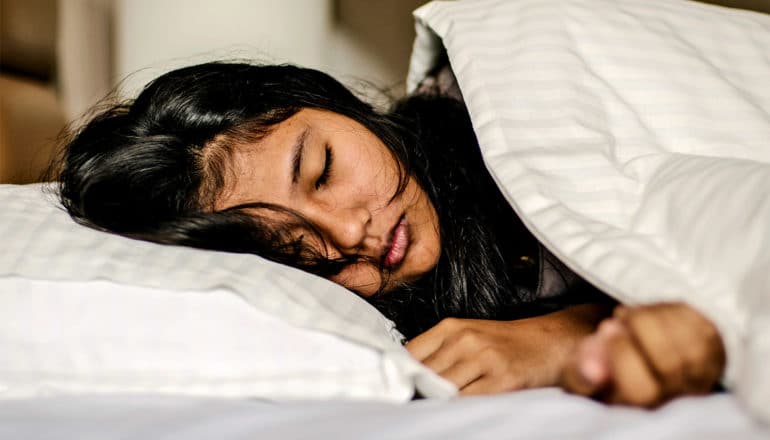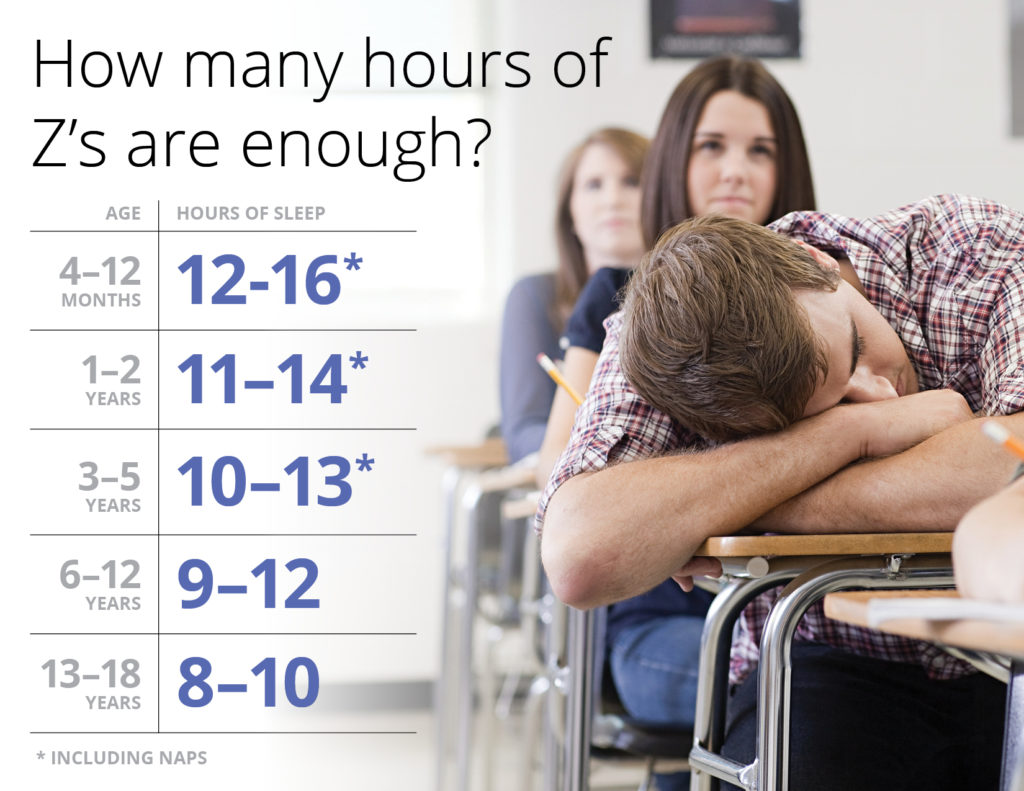
A clear bedtime that parents consistently stick with can get teens to sleep more, according to a new study.
“Greater enforcement of parent-set bedtimes for teenagers aged 14-to-17 are associated with longer sleep duration,” says lead author Jack Peltz, an assistant professor of psychology at Daemen College who conducted the study as part of a research appointment in the psychiatry department at the University of Rochester Medical Center.
Study participants included teenagers and their parents. The team asked their teenage participants to keep twice-daily sleep diary entries over seven days, collecting reports of sleep duration, daytime energy levels, and depressive symptoms. Parents, meanwhile, provided information about their enforcement of sleep-related rules and bedtimes.

Some key findings
- Parent-enforced bedtimes—along with later school start times—are the greatest predictors of sleep duration, daytime energy level, and depressive symptoms.
- More than 50% of parent respondents reported no specific or enforced bedtime rules, consistent with rates measured in previous research across families in the US.
- Evening screen time and caffeine consumption did not, contrary to the researchers’ hypotheses, significantly affect teenagers’ sleep duration over the course of the study.
In 2014, the American Academy of Pediatrics responded to the sleep deprivation epidemic by urging school districts to start classes no earlier than 8:30AM, especially for middle and high schoolers. But to date, only about 14% of US high schools have heeded the recommendation, which makes the rule-setting role of parents all the more important.
The researchers acknowledge that setting a bedtime for teenagers might be difficult; but their results suggest that even with pre-bedtime conflict, parents’ enforcement of bedtimes yielded better mental health outcomes for their offspring. That said, “ideally parents should be able to work collaboratively with their teenagers to develop bedtimes that still support the child’s autonomy,” says Peltz.
Healthy sleep for teens
The bottom line, according to coauthor Ronald Rogge, an associate professor of psychology, is that “even though adolescents start gaining self-sufficiency and independence, they still need sleep and might not prioritize that if left to their own devices.”
Absent an iron-clad rule, there are nevertheless healthy ranges, says coauthor Heidi Connolly, a professor of pediatrics and chief of the pediatric sleep medicine division. Most teenagers need 8.5 to 9.5 hours of sleep each night, she says, mirroring recommendations the American Academy of Sleep Medicine has made and the American Academy of Pediatrics has endorsed.
As for an appropriate bedtime, that of course depends on the wake-up time. “It’s inherently more difficult for teenagers to fall asleep earlier than later because of their circadian rhythm,” says Connolly. “That’s why it’s so important for high school start times to be later, as the American Academy of Pediatrics has recommended across the board.”
The ideal is to feel well rested during the daytime, and spontaneously awaken at around your scheduled wake-up time even when allowed to sleep in.
The team notes that future studies may be necessary to determine if their findings hold true across a range of populations; they caution that their sample was predominantly white, well-educated, and economically advantaged.
The research appears in Sleep.
Funding for the study came from the National Sleep Foundation.
Source: University of Rochester
The post To get your teens to sleep more, set a bedtime appeared first on Futurity.
from Futurity https://ift.tt/2T6EInM
No comments:
Post a Comment